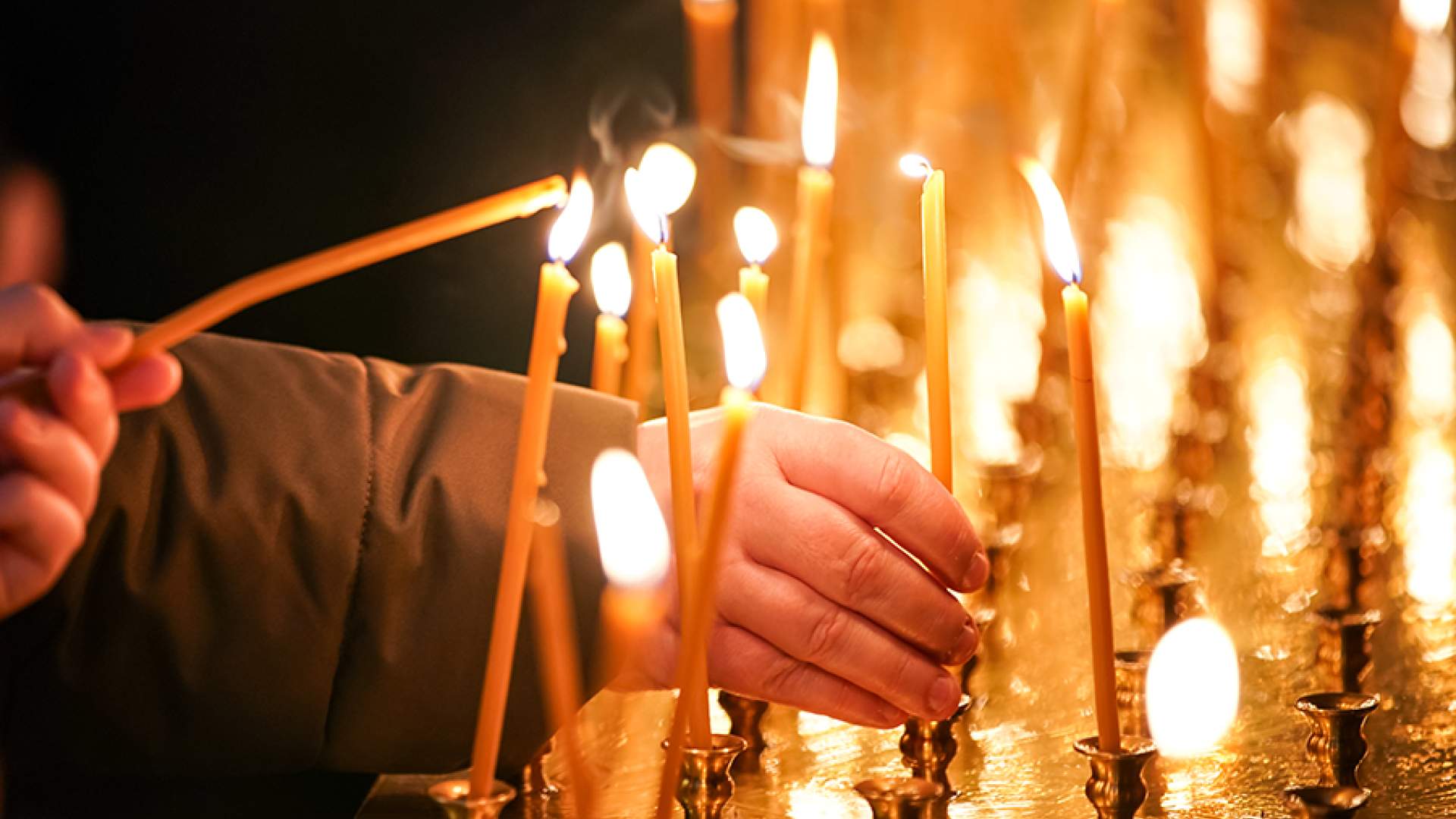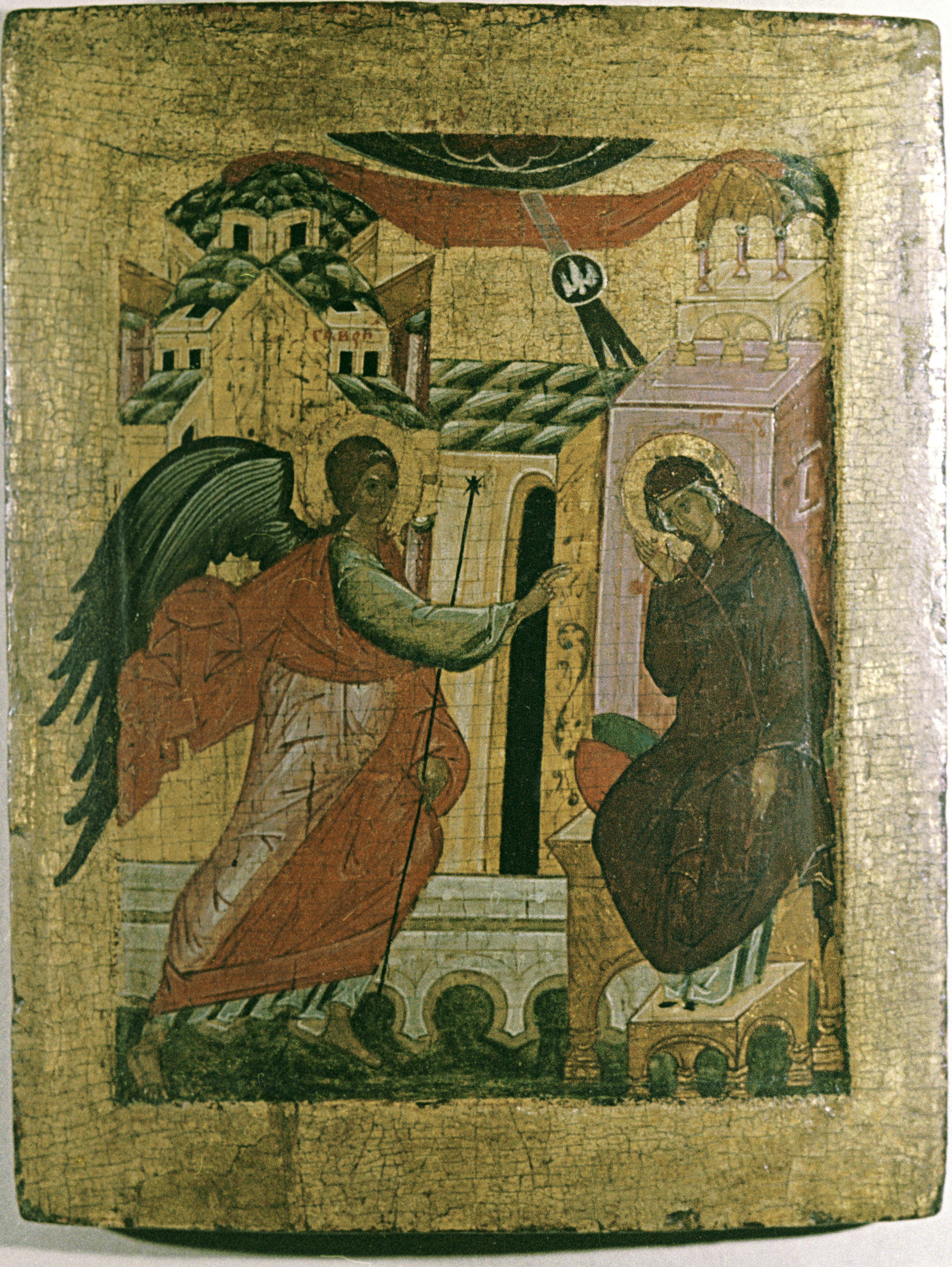The Annunciation is coming: what does a special Christian holiday mean?

In early April, believers celebrate the Annunciation of the Blessed Virgin Mary, one of the most important holidays in the church calendar. On this day, the archangel Gabriel appeared to the Virgin Mary and announced to her the joyful news of the impending birth of Jesus Christ. It is believed that this moment was the beginning of the salvation of mankind after the fall of Adam and Eve. A festive service is held in churches for the Annunciation, after which the faithful consecrate the Annunciation prosphora and distribute them to loved ones and those in need. For more information about which event the Orthodox holiday is dedicated to and how the church celebrates it in 2025, see the Izvestia article
The Christian holiday of April 7 — Annunciation — in 2025
The Annunciation of the Blessed Virgin Mary is celebrated annually by believers on April 7 (March 25, Old style) — exactly nine months before Christmas, which is celebrated on January 7. This period is not indicated by chance, because that is how long a woman carries a child in the womb. In 2025, the Annunciation falls on a Monday.
The Church celebration is one of the twelve most important Orthodox holidays and occupies a special place among them, as it is associated with the beginning of the New Testament history of the salvation of mankind after the fall of Adam and Eve, the first people on Earth created by God.

The date of the Annunciation is unchanged, but sometimes the celebration may coincide with Easter. Such a rare phenomenon is called Cyriopause (from the Greek. "κυριακή ΠάσχΑ" — "The Lord's Easter"). In the 20th century, the dates coincided in 1912 and 1991, and in the 21st century, Cyril is expected only in 2075 and 2086. When the Annunciation and Easter fall on the same day, it is considered a special sign of blessing.
Annunciation of the Most Holy Theotokos: what does it mean and why is it called that?
According to the Gospel of Luke, on April 7, the archangel Gabriel appeared to the Virgin Mary in the city of Nazareth and told her the good news that she would immaculately conceive and give birth to the Son of God, Jesus Christ. Young Maria asked how this was possible, because she "does not know her husband."
"You will conceive in your womb and bear a Son, and you will call his name Jesus. He will be great and will be called the Son of the Most High, and the Lord God will give Him the throne of His father David," Saint Gabriel explained.
After that, Mary replied to the archangel in agreement: "Behold, the handmaid of the Lord; let it be done to Me according to your word."
It is believed that after these words the immaculate conception took place. This event was a turning point in Christian history — the beginning of the path that led to the birth, preaching, crucifixion and resurrection of Jesus Christ. That is why the holiday is called Annunciation, which means "good, good news."
The Virgin Mary became the "second Eve" who fulfilled the message of Gabriel and completely surrendered herself to the will of God, thereby redeeming the fall of the first people. The Annunciation united the human and divine principles, embodied in the son of God, Jesus Christ.
Theologians emphasize that this holiday combines two of the most important Christian virtues: humility— Mary's consent to God's plan, and obedience, the archangel's fulfillment of God's will. In terms of significance, the Annunciation is equated with Easter — on this day it is allowed to celebrate the full liturgy during Lent, and in the folk tradition there was a strict ban on any work.
How is the Annunciation celebrated by the Orthodox
Solemn divine services are held in churches in honor of the Annunciation. On the eve of the holiday, an all—night vigil is held, and on April 7, the liturgy of John Chrysostom is read, during which special festive hymns are performed - the troparion "Today is our Salvation, the Glory" and the kontakion "To the Risen Voivode", as well as the magnification "Archangel Voice".
On this day, the clergy dress in festive blue robes — this color symbolizes purity and the image of the Virgin. The main prayer of the holiday is "Hail Mary, Virgin," the words of which are as follows:
"Hail Mary, Full of grace, the Lord is with Thee: Blessed art thou among women, and blessed is the fruit of thy womb, for thou hast borne the Saviour of our souls."
On the day of the feast, the faithful were allowed food allowances if the celebration did not fall on Holy Week, the week preceding Easter. In this case, it was allowed to eat fish at the Annunciation. Also on this day, the Annunciation prosphora was baked — small unleavened bread. Believers brought pastries to the temple for consecration, and then shared the loaves with the household. It was believed that the use of consecrated prosphora brings health and well-being.
One of the oldest traditions of the celebration is the release of birds. In the old days, people caught pigeons, larks and chickadees, and then released them into the sky, believing that the birds would bring good news about man to the angels. Nowadays, the clergy release pigeons from their cages after worship, which symbolizes the liberation of the soul and spiritual purity.
Among the people, the feast of the Annunciation was considered a symbol of the arrival of spring. Special "spring calls" were arranged for the celebration, poems were read and songs were sung, invoking warmth. The ancestors paid special attention to weather signs: a clear sky at the Annunciation foreshadowed a rich harvest, and a thunderstorm — a hot summer. If there was still snow on that day, it was believed that it would remain until Yegoriev Day— on May 6. The rain on the day of the celebration promised a rich harvest of mushrooms and berries, as well as prosperity in the house.
According to popular superstitions, it is forbidden to start new businesses and work in the field on the Annunciation — it was believed that any undertaking would be useless. There was also a belief that on this day "a bird does not build a nest, a girl does not braid a braid," that is, one should not engage in painstaking and hard work.
The ancestors believed that one should not give or borrow money for the Annunciation: this could lead to serious financial losses in the future. If you lose something on that day, it's unfortunate. It was believed that a lost thing would never be found. It was forbidden to swear, argue and swear, otherwise the whole year would be spent in quarrels and troubles.
At the Annunciation, they always read prayers, attended church, and helped those in need. They tried not to do any cleaning or laundry in the house, but they were not forbidden to prepare a lenten festive meal. On the day of the church celebration, it is important to put aside worldly fuss and worries in order to rejoice in the spiritual meaning of the holiday — humility and the salvation of mankind from the fall.
Переведено сервисом «Яндекс Переводчик»






